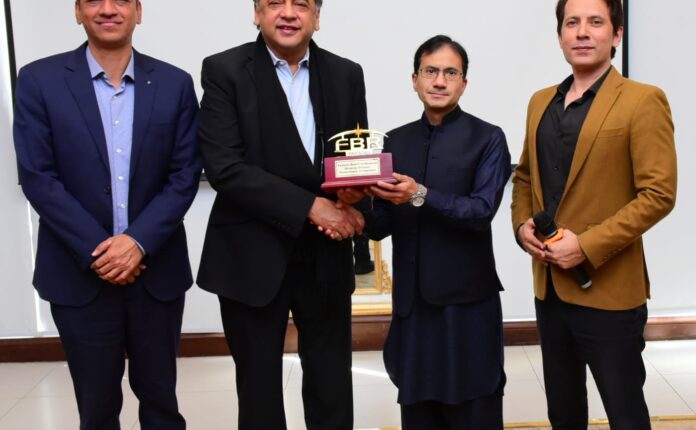Islamabad: Energy experts have urged the government to facilitate the immediate transition of CAPTIVE Power Plants (CPPs) to the grid system. They emphasized that this measure would not only stimulate power demand in the country but would also make significant amounts of natural gas available for the power sector, aligning it with the National Gas Allocation Policy of 2005 and Gas Supply Priority by the Economic Coordination Committee (ECC) in 2024. They also collectively stressed the need for a thorough audit of CPPs to accurately assess their claimed efficiency levels.
These recommendations were made by the energy experts in a session titled “Energy Priorities in Crisis: Navigating Gas Supply Cuts to Captive Power Plants in Pakistan,” organized by the Institute of Policy Studies (IPS) on Tuesday. The session was convened to analyze the government’s commitment to the International Monetary Fund (IMF) to phase out gas supplies to CPPs, aiming to optimize energy resources.
Wali Farooqui, Research Officer at IPS, commenced the seminar by pointing out that currently, there are an estimated 1,180 captive units in the country consuming approximately 358 MMCFD of natural gas while there are 400,000 industrial consumers dependent upon the grid. He further highlighted that if industries with captive power plants transition towards the grid, the benefits to the power sector and consumers are manifold—including reduced electricity prices due to natural gas reallocation, stimulation of national power demand which would reduce capacity payments, and a boost to the revenue of DISCOs, thereby reducing the circular debt burden.
Bilal A. Shaikh – Director Energy Business, Technology Solution Provider noted that gas utilization efficiency in most of the captives power plants was at lower side however, it was being projected that it was above 60 or 65% which was not factually correct. While clearing air around the claim that the gas utilities would incur significant loss if the gas was not provided to these captive units, he said that the gas could be diverted to gas-based power plants in the grid system that would bring more stability without any loss of revenue. Shaikh warned that if we would continue to provide gas to these captive units, we would damage the stability of the grid system in the country. He also lamented that the policy decisions were not being made keeping in view the grass-root reality and there is a data scarcity in the country.
Abu Bakar, Head of Energy & Sustainability at Amreli Steels remarked that unfortunately in Pakistan, policy makers introduce policies but do not timely modify it which becomes a challenge later on hinting at provision of gas to captive units instead of prioritizing the grid. He lamented that policy makers did not create a proper market neither for the gas nor for the electricity which amplified these challenges. Abu Bakar added that the biggest challenge faced by the industry was higher grid cost, had there been a provision of gas to grid instead of captive units, the cost of electricity would have been balanced to an extent. He suggested that firstly the grid cost needed to be lower and secondly proper markets for energy on right pricing should be established.
Rehan Jawed, a prominent industrialist, praised the Pakistan’s grid code which allows only 5% fluctuation as opposed to other parts of the world such as Germany where allowed percentage of fluctuation can reach up to 10%. Jawed mentioned that CPPs consume excessive resources despite their lower efficiency and noted that their claims of operating at 72% efficiency remain unverified, citing their resistance to audits and stay orders on gas prices in the past and lobbied to remove the audit clause altogether. Jawed also highlighted the financial burden of CPPs on the industrial sector causing capacity charges of up to Rs. 5 per unit which is borne by other all non-protected grid users this increasing their costs, and effectively capacity charges of 295 billion per annum were borne by grid users. To address these inefficiencies, Jawed proposed incentivizing CPPs to transition to the grid by offering temporary discounts and elevating efficient plants in the merit order, ensuring optimal utilization of resources. He further noted that since 2013, CPPs have been a significant contributor to energy losses due to rising gas prices and inefficient operations. Jawed also said that while calculating overall efficiency, some captive owners were taking into account both steam and electricity which was an incorrect approach. He emphasized that such claims are misleading, since Pakistan’s main issue is surplus electricity, and there are several alternative methods, such as using biomass and coal, to produce cheaper steam.
Asad Mahmood, an energy expert, highlighted the importance of improving coordination among government departments to enhance energy management and policies which are reflective of ground realities. He noted that while captive power plants play an important role in the industrial sector, a shift towards greater grid reliance is needed for a balanced energy landscape. Mahmood emphasized that if industries are assured of uninterrupted, high-quality power, they would prioritize the grid, helping address high capacity costs. He also highlighted the need for timely energy audits, better data collection, and productivity handbooks to improve efficiency and attract favorable tariffs for the industries.
Asim Riaz, Energy Adviser at All Pakistan Textile Mills Association (APTMA) called for a transparent and liberalized gas market where the most efficient plants are prioritized. He argued that scarce and valuable commodities arbitrarily cannot be allocated without ensuring market equilibrium and was of the view that the shift towards grid should be economically viable. He agreed that the CPPs audit should be conducted.
Ameena Sohail, Senior IPS Associate and Energy Lawyer, highlighted the need for integrated planning in the energy sector, underpinned by equitable policies. She emphasized that gas allocation should align with national interest rather than lobbying efforts, advocating for the evaluation of captive power plants based on efficiency benchmarks to phase out inefficient units. Sohail accentuated the necessity of establishing a fair benchmark to foster a competitive and sustainable market.
The session concluded with a consensus among the experts on the urgent need for policy reforms that prioritize efficient energy utilization and equitable resource allocation. They underscored that facilitating the transition of captive power plants to the national grid, conducting thorough efficiency audits, and establishing transparent energy markets are critical steps toward achieving energy sustainability and economic stability in Pakistan. The experts called on the government to act swiftly on these recommendations to enhance energy security and support the country’s industrial competitiveness.







